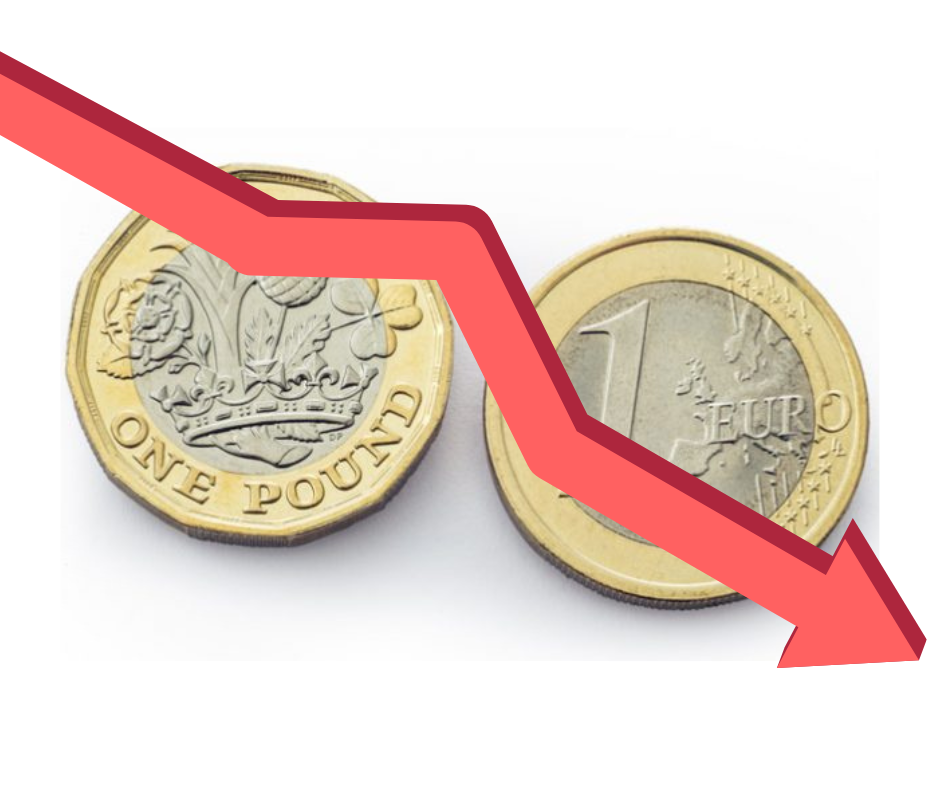As Russia Shuts Down The Nord Stream Pipeline Gas Prices Skyrocket And The Pound And Euro Plummet
Gas prices jumped on Monday, as the pound and euro fell after Russia shut down a major pipeline indefinitely.
In retaliation for sanctions imposed following its invasion of Ukraine, Russia has exploited its influence over gas supply to put pressure on European countries. The Russian state-controlled gas corporation, Gazprom, shut down the Nord Stream 1 pipeline from Russia to Germany on Friday, citing a leak that needed to be repaired.
The danger of Russian gas supply cuts has spurred European countries to stockpile as much gas as possible before winter, as well as efforts to identify alternate supplies.
However, the risk of Russia shutting down a vital pipeline drove prices to rise on Monday, as investors braced for severe shortages. The contract for gas delivery next month in the United Kingdom has increased by 35% to 550p per therm. This rose from the 410p per therm price on Friday afternoon, close to the five-month high of over 650p recorded last month.
The benchmark Dutch TTF October gas contract increased by 30%, increasing by €62 to €272 per megawatt hour.
The threat of gas shortages has also heightened concerns about recession risks in economies that rely on fuel for industry and electricity generation, such as the United Kingdom and the European Union. As a result, their currencies have weakened as investors seek safety in the US dollar and reduce exposure to an economy that may have to reduce industrial output significantly.
The euro fell to a 20-year low against the US dollar on Monday, falling as low as $0.9879 in early trading.
After weeks of weakness, the pound plummeted below its pandemic lows versus the dollar on Monday morning, dropping to its lowest level in decades.
It quickly plummeted to a low of 1.1444 dollars per pound, well below the 1.14506 reached on March 19, 2020.
It’s been 37 years since British tourists in the United States and importers bringing goods into the country got such little bang for their buck.
Because much worldwide trade is conducted in dollars, the collapse will make imports far more expensive for Britons.
European stock market indices have also fallen. Germany’s Dax fell nearly 3%, while France’s Cac 40 fell 2%. However, the FTSE-100 in London, whose companies tend to generate more revenue in US dollars, dipped by only 1.1%.
Kit Juckes, a macro strategist at the Société Générale bank, said: “It’s unclear how long the pipeline will remain shut, but it is still obvious that President Putin is using it as a weapon to weaken European resolve in supporting Ukraine.”
Lee Hardman, a currency analyst at MUFG Bank, said: “Russia’s ongoing weaponisation of energy supplies continues to increase downside risks for European economies and the euro.”
Oil prices also rose following news that Opec, the cartel of oil-producing countries, was considering lowering output. According to Reuters, Opec members and other significant oil-producing partners, including Russia, will discuss lowering production by 100,000 barrels per day, among other alternatives, at their meeting on Monday.
Brent crude oil futures, the global benchmark, climbed 2.7% to more than $95.50 per barrel on Monday morning, up from $93. The North American benchmark, West Texas Intermediate, rose 2.5% to $89 per barrel.
The leaders of the G7 countries — the United Kingdom, the United States, France, Germany, Italy, Japan, and Canada – agreed on Friday to cap the prices paid for Russian oil in order to prevent sales from benefitting the Kremlin, however, it is uncertain whether the cap will result in reduced costs.
Online sources: theguardian.com, yahoo.finance.com All opinions and views expressed or suggested by the Digital Zeitgeist are not necessarily the same opinions and views held by or suggested by GPM-Invest plus any and all partners, affiliates, parties, or third parties of GPM-Invest. Any type of media distributed by GPM-Invest IS NOT financial advice. Please seek advice from a professional financial advisor

